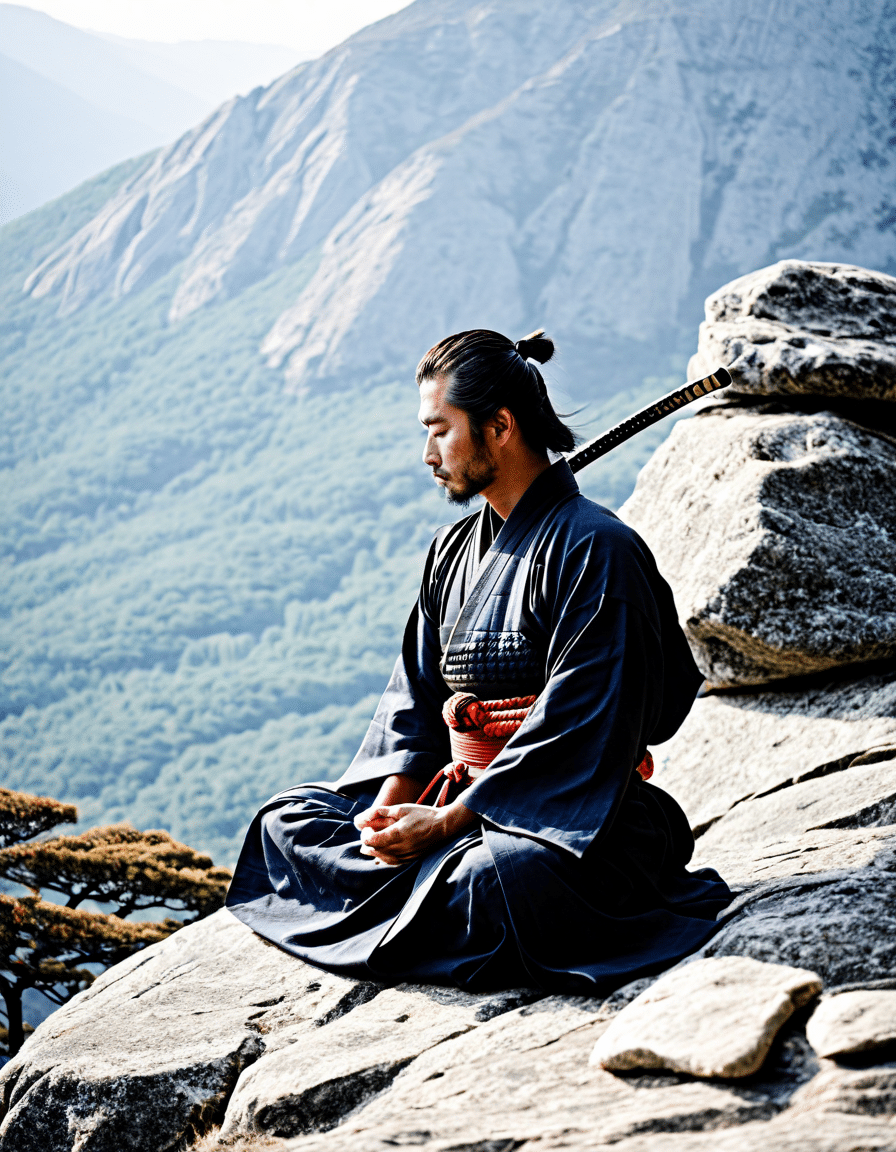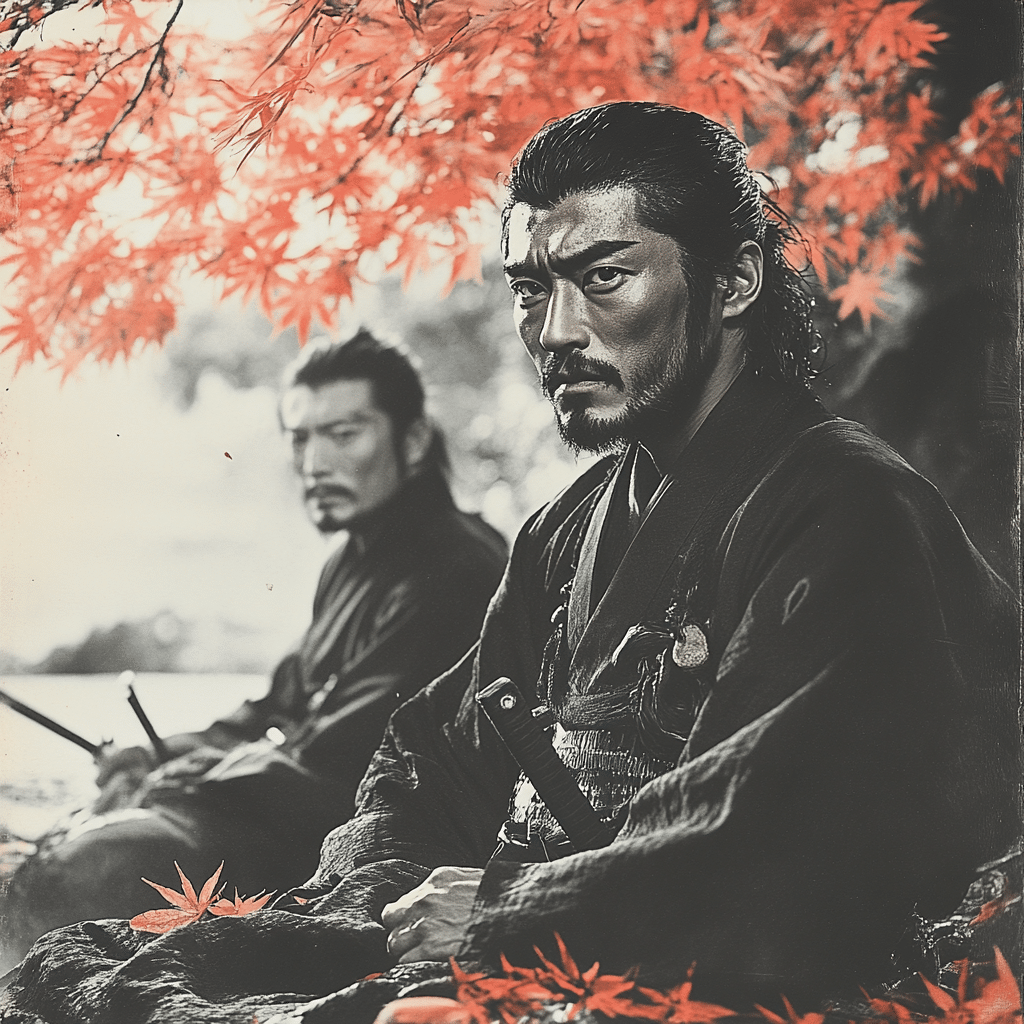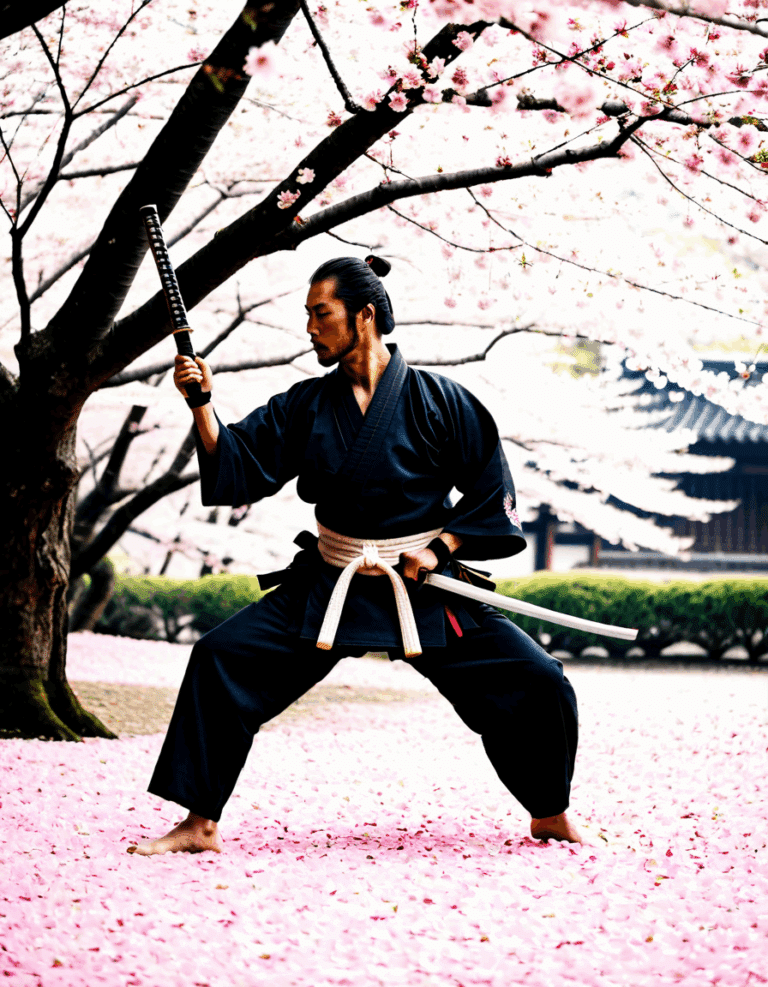When you think of samurai, what comes to mind? Sword-fighting, epic battles, and perhaps a dash of honor? Indeed, the samurai were elite warriors in feudal Japan renowned not just for their martial skills but also for their commitment to a strict code of conduct called Bushido. This “Way of the Warrior” is a fascinating blend of principles that shaped samurai lives and still resonates in Japanese culture today. So, grab a cup of green tea, and let’s dive deep into the legendary code of honor that makes samurai a remarkable subject to explore.
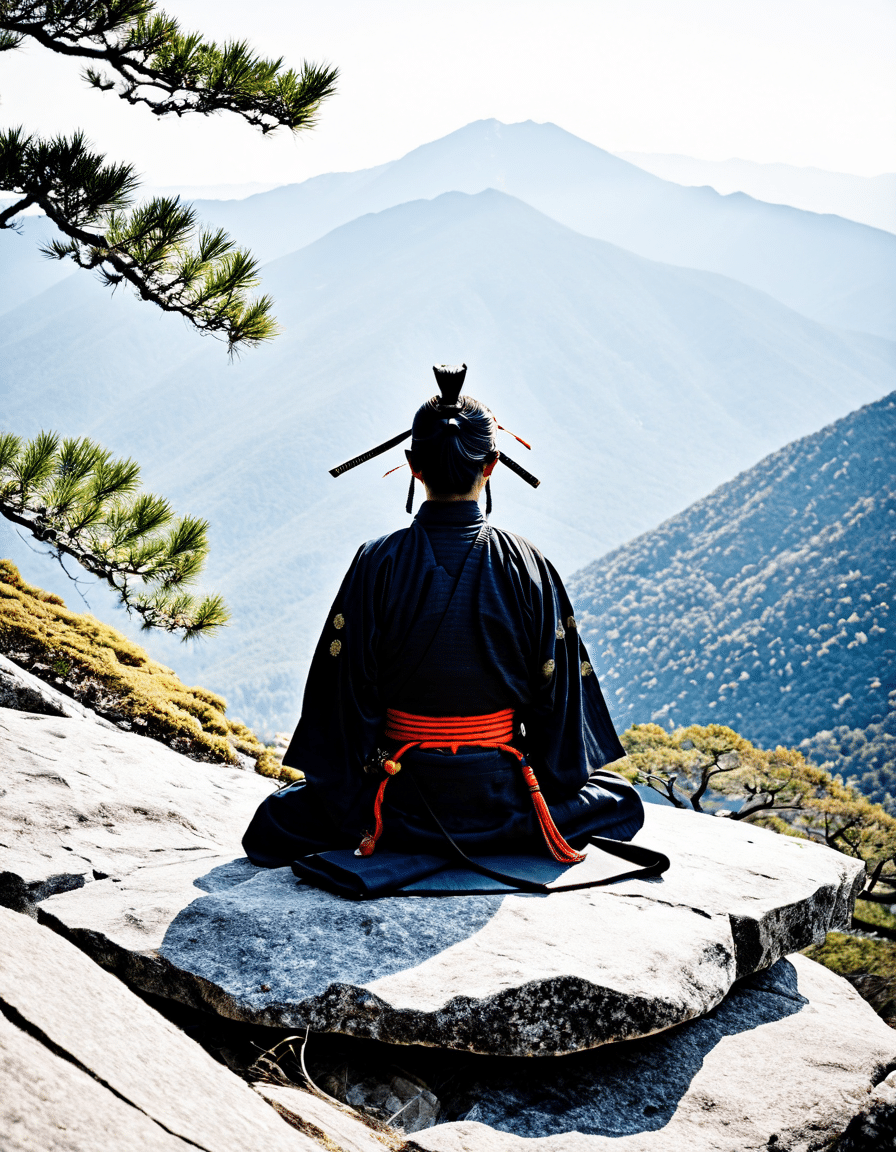
The Essentials of Samurai Code: Bushido Explained
Bushido is much more than warrior dogma; it’s a philosophy encompassing key virtues like loyalty, courage, honor, and self-discipline. Understanding these principles is crucial for grasping the samurai ethos and how they carried themselves both on and off the battlefield. Think of it as the Samurai Handbook for Life, loaded with timeless advice that can even guide you through modern dilemmas—minus the sword, of course.
Top 7 Principles of Bushido That Defined the Samurai
1. Rectitude (Gi)
Rectitude isn’t just a fancy word; it means doing what’s right, no matter the situation. Miyamoto Musashi, a legendary samurai, lived by this principle. His writings stress the importance of integrity while fighting, showing that what you do matters just as much as how you do it.
2. Courage (Yū)
For samurai, courage wasn’t just about not flinching in battle; it was about moral fortitude. Take Takeda Shingen for instance—he led his troops into daunting battles, demonstrating that bravery can manifest in more ways than just swordplay. That kind of guts? The stuff of legends.
3. Benevolence (Jin)
Now, you might think samurai were all about blood and guts, but let’s not forget benevolence—the spirit of compassion. Oda Nobunaga, famous for his ruthless tactics, surprisingly supported the arts and improved agriculture for the people. Shows you that you can be fierce and kind, right?
4. Respect (Rei)
Respect was crucial to the samurai’s relationship with the people. They practiced ‘Rei’ to cultivate mutual respect, enabling figures like Tokugawa Ieyasu to stabilize Japan through dignified governance. No wonder people didn’t rise up against him; respect is a two-way street.
5. Honesty (Makoto)
Honesty isn’t just the best policy; it’s essential in samurai life. Saigo Takamori, a prominent samurai, demonstrated unwavering transparency in political matters. His reputation wasn’t just built on his sword skills but also trustworthiness, which helps to reinforce the idea that integrity pays off.
6. Honor (Meiyo)
Honor stood as the pinnacle of Bushido. Many samurai would rather die than live dishonorably, often choosing seppuku as a means to preserve their dignity. The saga of the 47 Ronin illustrates how this pursuit can lead to heroic—and tragic—outcomes. It’s a wild ride of loyalty, revenge, and serious moral dilemmas.
7. Loyalty (Chūgi)
Loyalty to one’s lord was non-negotiable for samurai. Just look at Kanetsugu Naoe, who demonstrated unparalleled loyalty to the Uesugi clan. His legacy teaches the value of staying true to your commitments—sometimes even in the face of betrayal.
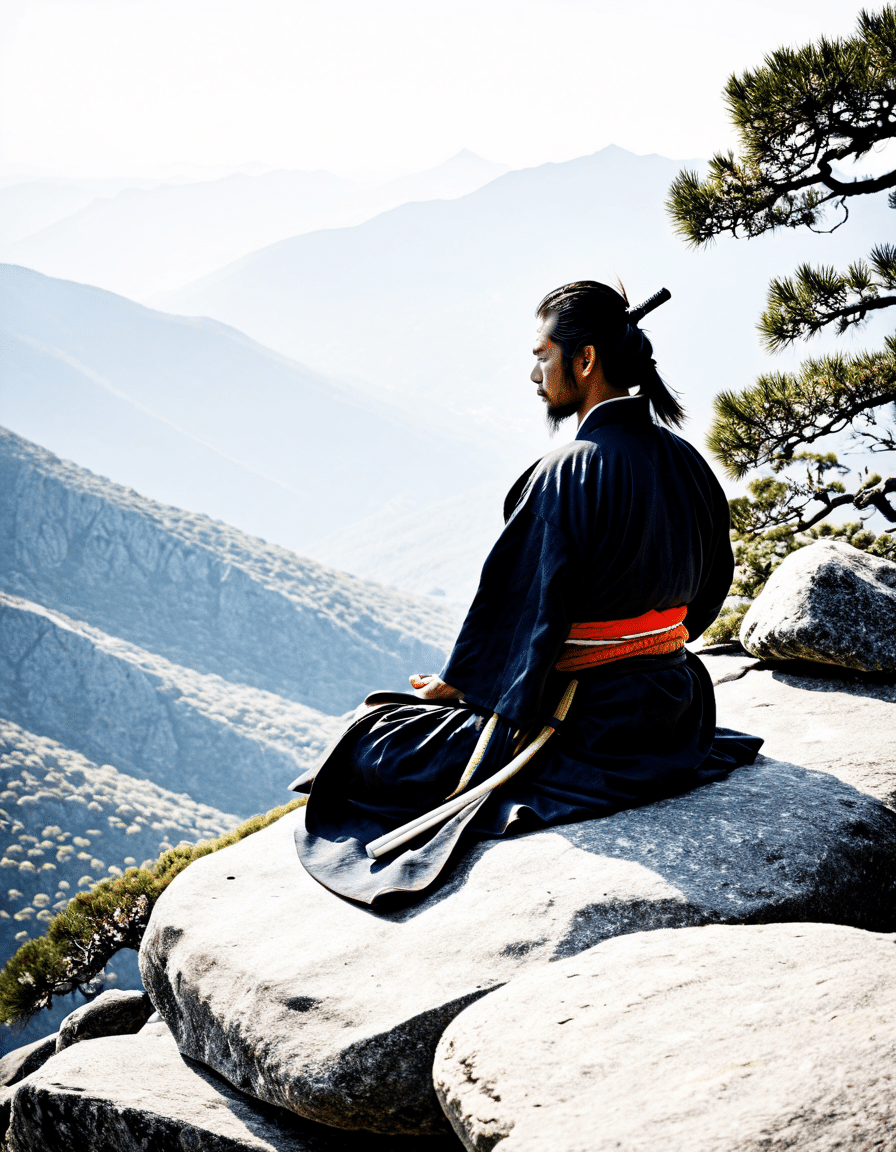
The Samurai’s Influence on Modern Japanese Culture
Believe it or not, the principles of samurai are alive and kicking in contemporary Japan. Whether it’s in the corporate offices valuing harmony or the resurgence of traditional arts like judo and karate, the samurai spirit remains a fixture in modern life. It’s like having a piece of the past living right alongside us today!
For instance, martial arts schools aren’t just teaching people how to throw punches; they impart samurai values like discipline, respect, and humility. Think about it: when you’re mastering those roundhouse kicks, you’re also practicing age-old samurai philosophies. So, yes, you can take home that “Dojo” tag alongside your black belt!
Moreover, the samurai’s depiction in films and literature opens windows to their complex nature. In movies like Seven Samurai and 13 Assassins, samurai are portrayed not merely as warriors but as individuals grappling with ethical dilemmas. This resonates today as we binge-watch shows like How To Get Away With a Murderer, where moral choices can lead to dire consequences, echoing the samurai’s eternal struggle with honor.
The Samurais’ Code: A Guide to Personal Honor
Bushido isn’t just about historical stuff—its decency can guide us in the chaos of today’s world too. Authenticity, respect, and integrity are not just markers of a good samurai but are ever-valuable in professional domains today. Think about it: as we scroll through social media fraught with fake news and filtered lives, old-school samurai principles bring a refreshing twist back to personal honor.
Imagine adopting a modern view of bushido. What if every time you went to work, you made it a point to embody the same values upheld by the samurai? You might find yourself standing out in a sea of mediocrity—who wouldn’t love that? It’s a reminder to remain steadfast, like a samurai, prioritizing honor.
Samurai Resilience: Lessons for Today
The samurai faced a rollercoaster of challenges throughout history. But did they fold like a cheap suit? Nope! Their strict adherence to Bushido gave them the strength to endure wars, betrayals, and societal shifts. Resilience is a gem that modern folks can learn from, helping us bounce back in tough situations.
Focusing on resilience can inspire both individuals and organizations today. Just like a samurai with unyielding principles, you can adapt and thrive instead of crumbling under pressure. Whether it’s a work deadline or personal upheaval, pulling from the samurai playbook can pave the way for overcoming adversities.
As we reflect on the legendary code of honor practiced by samurai, we uncover how their timeless philosophy can wield influence over our lives today. From loyalty to moral integrity, the samurai’s legacy continues to illuminate the path toward honor and dignity in today’s whirlwind of culture. By embracing these ideals, we craft our own “Way of the Warrior” and aim to keep our commitment to honor alive in both our workplaces and personal lives.
And while we’re on the topic of courage, loyalty, and honor, if you’re curious about some contemporary stories of fidelity and fierce loyalty reminiscent of samurai bushido, take a look at how the Yakuza represents modern samurai in today’s society. Or check out other epic tales like Enemy Mine, where principles of loyalty and understanding emerge under pressure.
In closing, the virtues of samurai offer guidance in an unpredictable world. Remember, your own piece of bushido awaits—you just have to channel it! So go ahead, be the samurai in your life, whether you’re handling projects at work or pursuing your dreams. It’s about time we wield our swords—metaphorically, of course—like true warriors!
Samurai: Warriors of Honor and Discipline
The Origins and Influence of Samurai Culture
The samurai, Japan’s iconic warrior class, first emerged during the Heian period (794-1185), originally serving noble families and helping maintain order. Their legacy is rich with tales of bravery and deference to their code of honor known as Bushido. This code emphasized virtues like loyalty, courage, and honor, creating a framework that far surpassed mere combat.
Interestingly, you might be surprised to know that the samurai’s influence extends beyond a historical footnote. Films, video games, and even television series continue to depict their valiant ways, drawing inspiration from stories about them. For instance, actress Ming Na wen captures the essence of strong female characters in modern storytelling, often inspired by these warrior traditions. Furthermore, if you’re keen to check out how their values resonate today, a trip to Bishop ‘s Waltham may show you some remarkable historical connections in a quaint English town!
The Tools of a Samurai’s Trade
Now let’s dive into the gear that made a samurai legendary. The katana is perhaps the most recognized symbol of the samurai, but did you know that these swords were hand-forged over generations and often became heirlooms? Each blade tells a story, reflecting the craftsmanship passed down through families. The care that went into creating each katana mirrors a samurai’s dedication to their code—very much akin to how no bull shoes boast a commitment to quality craftsmanship.
Additionally, samurai armor was just as intricate. Crafted for both protection and mobility, it featured layered materials and was often adorned with unique designs, signifying a samurai’s identity. This highlights a parallel in today’s marketplace where branding is pivotal. Just check out Schlotzsky ‘s for an example of how presentation counts in today’s food industry!
The Legacy of Samurai in Pop Culture
Fast-forward to today, and the samurai’s legacy is alive and kicking. Movies like “The Last Samurai” and countless anime series have captured audiences around the globe, showcasing their philosophy and skill in a captivating manner. In fact, there’s a scheduled release for a new series that promises to explore themes reminiscent of samurai lore—mark your calendars for the Captain America : Brave new World Showtimes because it taps into those age-old themes of heroism and justice.
In summary, the samurai are a fascinating topic that weaves together history, culture, and contemporary storytelling. Their unwavering commitment to honor and discipline continues to inspire many, proving that while tools and attire may evolve, the values that define a warrior remain timeless. So the next time you find yourself transfixed by a samurai tale, remember the rich tapestry of tradition that fuels these stories!
